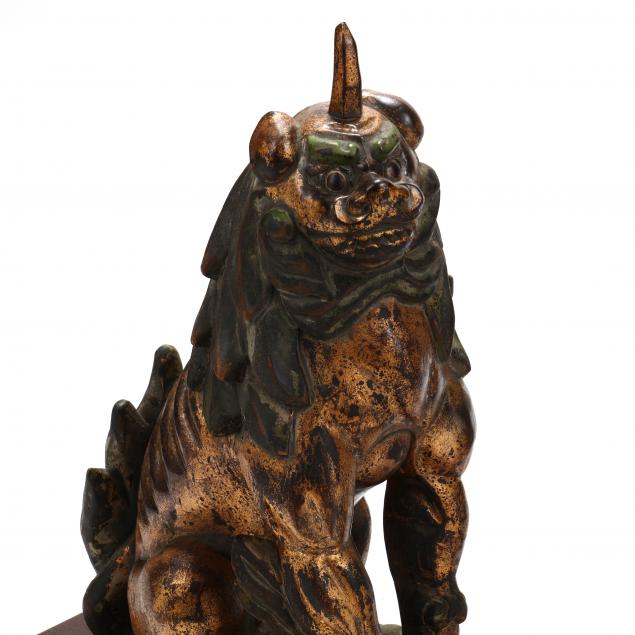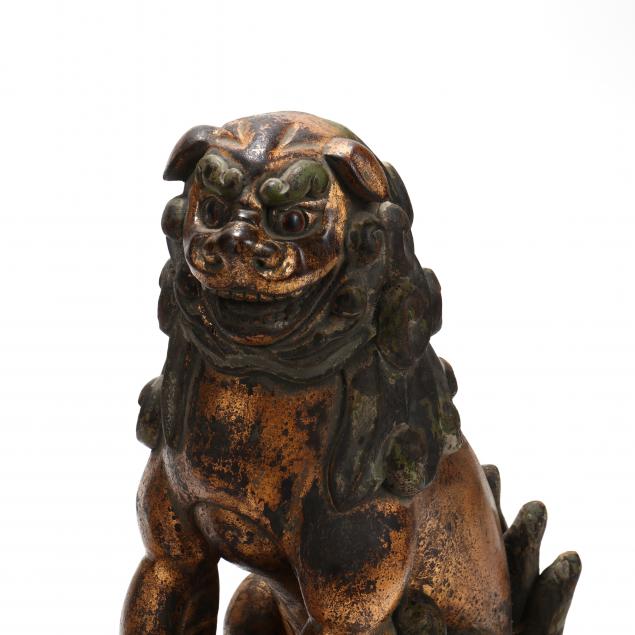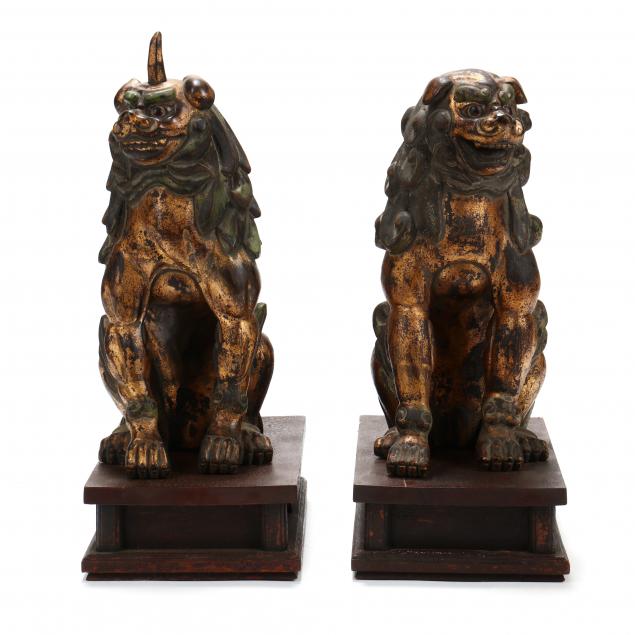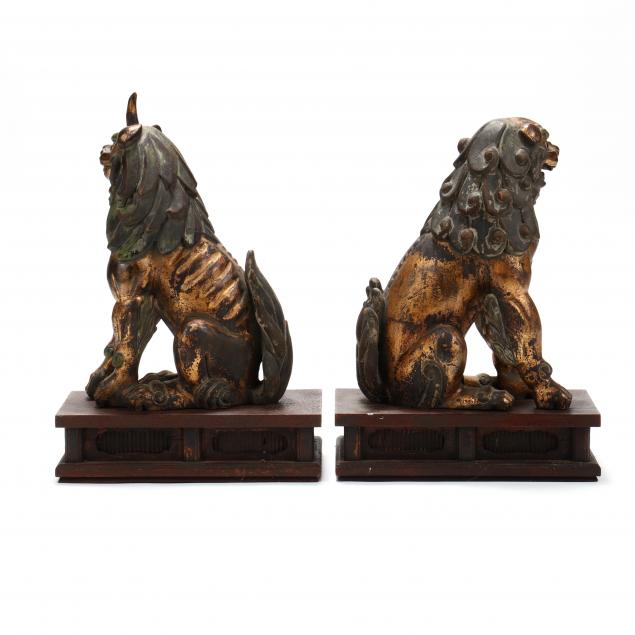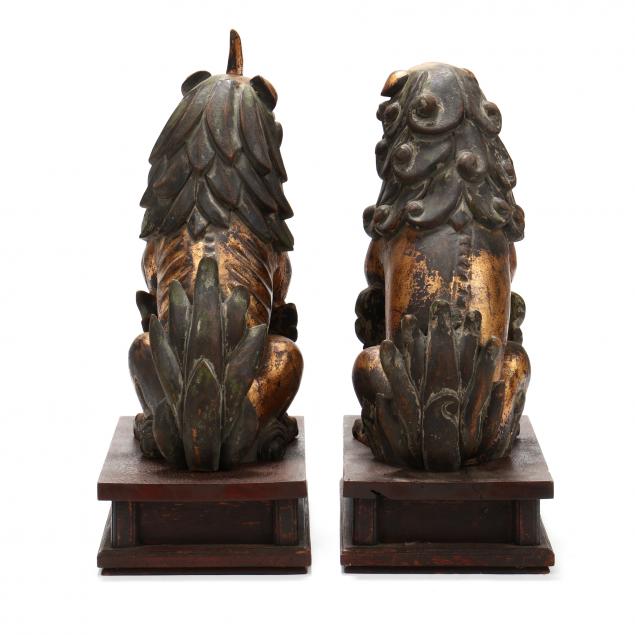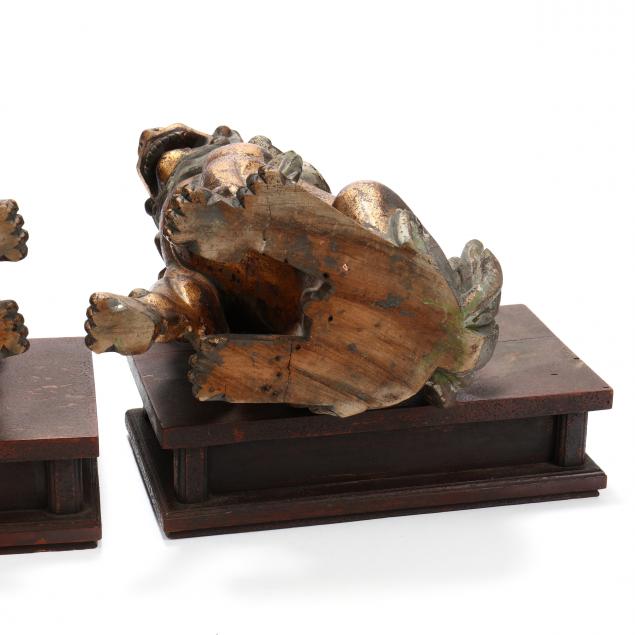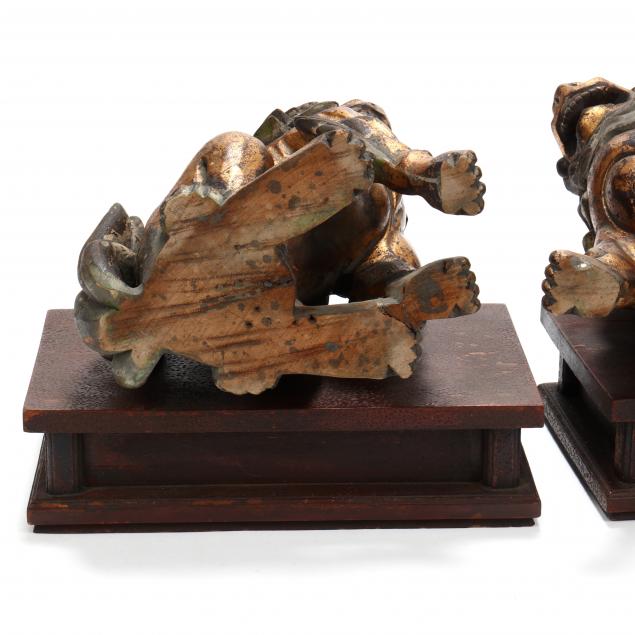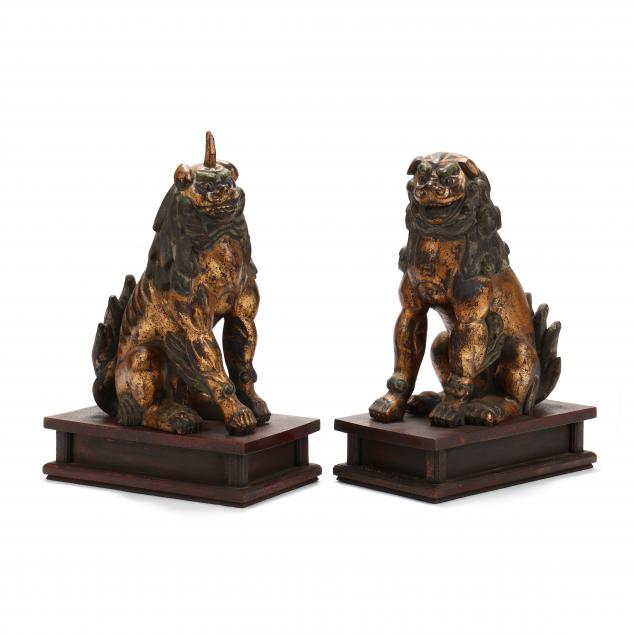
Lot 68
A Pair of Japanese Carved Gilt Wood Komainu and Shishi Guardian Lions
Explore more items like this one.
Visit our Asian Arts Department Asian Arts
Lot Details & Additional Photographs
DOA 25 1/2 x 10 x 17 1/2 in.
From the Collection of the late Keith Stanley, Professor Emeritus of Classical Studies at Duke University, North Carolina
These guardian lions would originally have flanked the entrance to a Buddhist temple or a Shinto shrine in Japan. This tradition dates back to the Heian period (794-1185 CE), where pairs of guardian figures were placed to warn off evil spirits from entering the temple and causing harm to the sacred deities inside. The guardian on the right is a lion shishi and on the left a lion-dog komainu distinguished by a single horn. The shishi has an open mouth, symbolically intoning the syllable "a", while the komainu has a closed mouth, indicating the syllable "un," the first and last letters of the Sanskrit alphabet symbolizing the entirety of the cosmos.
Overall good condition; some scattered surface losses to pigments and gilt; some rubbing and slight nicks to edges; minor stress cracks to wood.
$500 - 1,000
